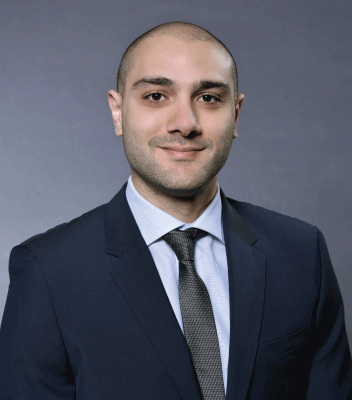2020 Janet Taylor Spence Award

Nour Kteily
Please briefly describe your research interests.
At the broadest level, I’m interested in the psychological forces that help to explain why human societies are so reliably organized into relatively stable social hierarchies, with some groups enjoying privileges at the top and others languishing without at the bottom. In my work, I try to better understand the mechanisms by which hierarchy is maintained (and sometimes challenged). As one of the mechanisms that has historically contributed to the domination and exploitation of disadvantaged groups, in recent years I have become interested in the topic of blatant dehumanization.
What was the seminal event, or series of events, that led you to an interest in your award-winning research?
A big part of my interest in hierarchy actually stems from geopolitics, and in particular from reading about and observing the ways in which power and dominance motives infuse much of international relations. I’ve been a particularly keen observer of developments in the Middle East, which has provided no shortage of examples. My work on dehumanization actually began after Dan Wegner assigned me to present a paper to my class in graduate school. The paper described a highly subtle and indirect measurement of the phenomenon (intended to circumvent social desirability). While presenting the paper, I completely blanked and couldn’t reconstruct the details. Beyond the (significant!) sense of embarrassment, my abiding thought was that this approach to studying dehumanization was at odds with the very overt (and more straightforward) forms of dehumanization I’d witnessed around the world (including the Middle East). So I decided to study it.
Tell us about one of the accomplishments you are most proud of within this area of research. What factors led to your success?
I’m particularly proud of a pair of papers that explored the psychological experience of feeling dehumanized by another group (which we call meta-dehumanization). Despite its importance, little research had considered the experience of being on the receiving end of dehumanization. In one paper, we examined the extent to which Muslim and Latinx Americans felt dehumanized in the context of the rhetoric surrounding the 2016 election, which we felt was a perspective that needed illuminating. As with most of the things I’m proud of within academia, this work wouldn’t have been possible without excellent collaborators, and I owe a particular debt of gratitude to my long-time collaborator on my work in this area, Emile Bruneau.
What contributions, or contributors, to psychological science do you feel have had a major impact on your career path?
I’ve been lucky to have been shaped by some fantastic scholars. I wouldn’t have gotten into psychology were it not for Donald M. Taylor, who made me (and many other undergraduates at McGill University!) fall in love with the area, and drove me to do work that addresses injustice in the world. I’m immensely grateful to my graduate advisor, Jim Sidanius, whose book Social Dominance Theory (co-authored with Felicia Pratto) helped to organize much of my thinking. Jim’s lab group introduced me to some of my closest friends and intellectual influences in Arnold Ho, Jennifer Sheehy-Skeffington, and Emile Bruneau (among others). And at Northwestern, I’ve been incredibly fortunate to lean on the mentorship of colleagues like Eli Finkel and Jennifer Richeson (as well as other scholars in the Chicago area, like Linda Skitka).
What questions do you hope to tackle in the future?
One of the new and ongoing research projects I’m working on that’s especially exciting me these days asks how groups formerly occupying disadvantaged positions in a social hierarchy act when the tables turn and their group rises to the top. Specifically, we consider how they treat their former oppressor and third-party disadvantaged groups, depending on a variety of contextual factors prior to shifts in the hierarchy. This research could help us better understand the processes by which hierarchies tend to reproduce over time.
What does winning this award mean to you both personally and professionally?
Winning this award is a tremendous honor, both because it is awarded in memory of Janet Spence, and because of the outstanding quality of the other scholars who have received it. I only hope I can live up to it!

